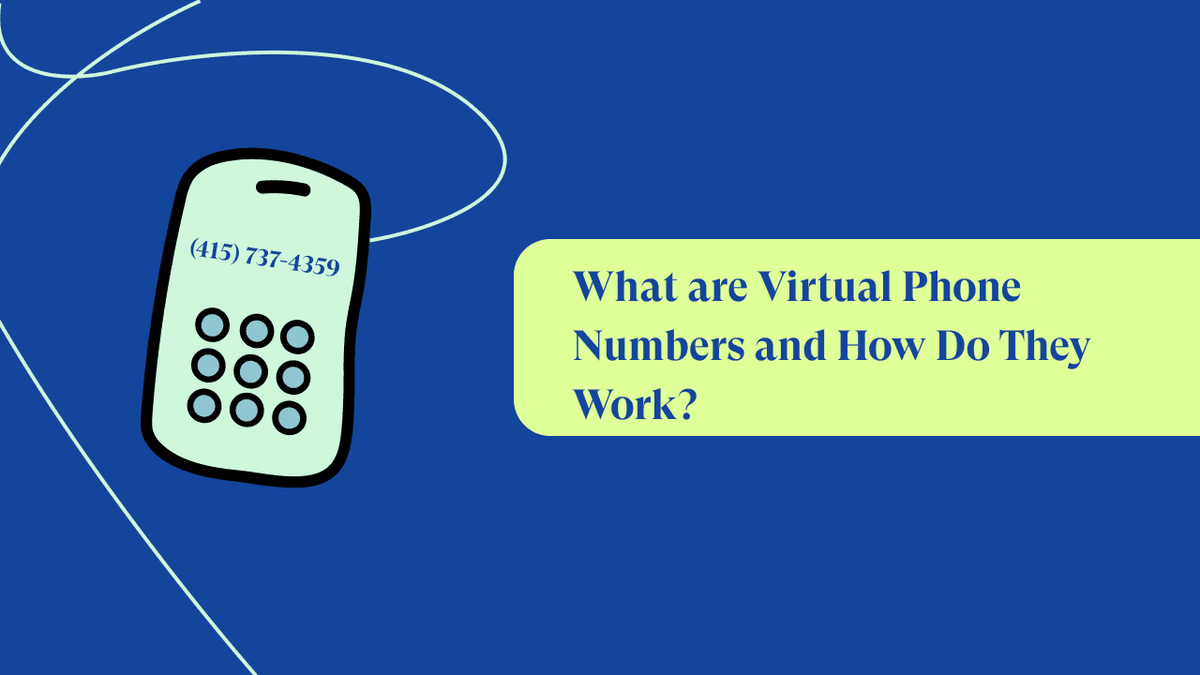In today’s rapidly evolving digital landscape, communication methods are continuously transforming. One of the most notable advancements is the advent of virtual phone numbers. These numbers provide a flexible, cost-effective, and efficient way to manage communications, especially for businesses and individuals who need to handle multiple lines or operate in various regions. This comprehensive guide explores the intricacies of virtual phone numbers, their benefits, technological aspects, and the best providers in the market.
What is a Virtual Phone Number?
A virtual phone number is a telephone number that is not directly associated with a physical phone line. Instead, it leverages internet technology to route calls, SMS, and other communications to and from various devices such as smartphones, tablets, computers, and even traditional landlines. This flexibility allows users to manage their communications from anywhere in the world, provided they have an internet connection.

Virtual Phone Numbers and Virtual SMS
A significant use case for virtual phone numbers is the ability to receive SMS messages. Many users opt for a virtual phone number to receive SMS for purposes such as two-factor authentication, marketing, customer support, and more. By using virtual numbers, businesses can streamline their communication processes and enhance customer engagement without the limitations of traditional phone systems.
Virtual SMS services are an integral part of the virtual phone number ecosystem. These services enable the reception of text messages online, allowing users to manage their messages from a centralized platform. This can be particularly beneficial for businesses that need to handle large volumes of SMS communications efficiently. For example, a marketing campaign that sends out thousands of promotional messages can be managed more effectively using virtual SMS services.
Benefits of Using Virtual Phone Numbers
- Flexibility and Mobility
One of the primary advantages of virtual phone numbers is the unparalleled flexibility they offer. Users can receive calls and SMS on multiple devices, ensuring they are always reachable regardless of their location. This is particularly beneficial for remote workers, digital nomads, and businesses with a global presence.
- Cost-Effectiveness
Virtual phone numbers can be significantly more cost-effective than traditional phone lines. They eliminate the need for physical infrastructure and reduce costs associated with international calls and SMS. This makes them an attractive option for businesses looking to minimize expenses while maintaining robust communication channels.
- Scalability
As businesses grow, their communication needs evolve. Virtual phone numbers offer a scalable solution that can easily adapt to changing requirements. Adding new numbers or lines is straightforward and can be done without the need for additional hardware or complex installations. This scalability ensures that businesses can expand their communication capabilities seamlessly.
- Enhanced Privacy
For individuals and businesses alike, privacy is a major concern. Virtual phone numbers provide an additional layer of privacy by allowing users to separate their personal and professional communications. This is particularly useful for freelancers, entrepreneurs, and businesses that want to protect their employees’ personal information.
- Advanced Features
Virtual phone numbers come equipped with a range of advanced features that enhance their functionality. These features include call forwarding, voicemail to email, call recording and automated attendants. By leveraging these tools, businesses can improve their communication processes and provide better service to their customers.
Technological Aspects of Virtual Phone Numbers
- VoIP Technology
Virtual phone numbers operate on Voice over Internet Protocol (VoIP) technology. VoIP converts voice signals into digital data packets that are transmitted over the internet. This technology enables high-quality voice communication without the need for traditional phone lines. VoIP also supports additional functionalities such as video calls, conferencing, and multimedia messaging.
- Cloud-Based Systems
Most virtual phone number providers use cloud-based systems to manage their services. Cloud technology offers several benefits, including scalability, reliability, and security. By leveraging the cloud, providers can ensure that their services are always available and can handle large volumes of traffic without performance degradation.
- API Integration
Many virtual phone number services offer API integration, allowing businesses to incorporate virtual phone functionality into their existing systems and applications. This integration enables seamless communication workflows and automates various tasks such as call routing, SMS notifications, and customer interactions. For example, an e-commerce platform can use API integration to send order confirmations and delivery updates via virtual SMS.
- Artificial Intelligence
Artificial Intelligence (AI) is increasingly being integrated into virtual phone number services to enhance their capabilities. AI-powered features such as intelligent call routing, voice recognition, and sentiment analysis can significantly improve the user experience. For instance, AI can analyze incoming calls and route them to the most appropriate department or agent based on the caller’s needs.

Applications of Virtual Phone Numbers
- Business Communication
Virtual phone numbers are widely used in business communication. They allow companies to establish local presence in multiple regions without the need for physical offices. This can be particularly beneficial for customer support, sales, and marketing efforts. By using local virtual phone numbers, businesses can build trust with their customers and improve engagement.
- Marketing Campaigns
Marketing campaigns often require sending large volumes of SMS messages to potential customers. Virtual phone numbers and virtual SMS services make it easy to manage these campaigns efficiently. Businesses can track the performance of their campaigns, analyze response rates, and optimize their strategies based on real-time data.
- Customer Support
Providing excellent customer support is crucial for any business. Virtual phone numbers enable companies to set up dedicated support lines that can be accessed from anywhere. Features such as call forwarding, automated attendants, and voicemail ensure that customer inquiries are handled promptly and efficiently.
- Remote Work
The rise of remote work has increased the demand for flexible communication solutions. Virtual phone numbers allow remote workers to stay connected with their teams and clients without the need for a physical office phone. This flexibility enhances productivity and ensures that communication remains uninterrupted, regardless of location.
- Personal Use
Individuals also benefit from using virtual phone numbers. For example, someone selling items online might use a virtual number to keep their personal number private. Similarly, travelers can use virtual phone numbers to avoid international roaming charges and stay connected with family and friends.
Best Virtual Phone Number Providers
Several providers offer virtual phone number services, each with its unique features and benefits. Here are some of the best virtual phone number providers, with eSIM Plus leading the list:
- eSIM Plus: Known for its extensive coverage and competitive pricing, eSIM Plus offers a variety of plans tailored for both individual and business needs. With features such as intelligent call routing, voicemail transcription, and detailed call analytics, eSIM Plus is a top choice for virtual phone numbers.
- Grasshopper: Grasshopper is a popular choice for small businesses and entrepreneurs. It offers a range of features, including call forwarding, voicemail to email, and custom greetings. Grasshopper’s scalability and ease of use make it an excellent option for businesses looking to enhance their communication systems.
- RingCentral: RingCentral provides a comprehensive virtual phone system with advanced features such as video conferencing, team messaging, and integration with CRM systems. Its powerful analytics tools and AI-driven capabilities make it ideal for larger organizations with complex communication needs.
- Google Voice: Google Voice offers a simple and cost-effective solution for individuals and small businesses. With features such as call forwarding, voicemail transcription, and integration with Google Workspace, Google Voice provides a seamless communication experience across multiple devices.
- VirtualPBX: VirtualPBX offers a robust virtual phone system with features tailored for businesses of all sizes. Its advanced call management tools, including automated attendants and call queuing, help businesses streamline their communication processes and improve customer service.
Virtual phone numbers have revolutionized the way we communicate, offering unparalleled flexibility, cost-effectiveness, and advanced features. By leveraging technologies such as VoIP, cloud computing, API integration, and AI, virtual phone numbers provide a robust solution for both personal and business communication needs. Whether you need a virtual phone number to receive SMS, manage customer support, or run marketing campaigns, the providers listed above offer a range of options to suit your requirements.
As the demand for virtual communication solutions continues to grow, virtual phone numbers will play an increasingly important role in connecting people and businesses worldwide. By understanding the benefits and applications of virtual phone numbers, users can make informed decisions and fully leverage the advantages of this innovative technology.















